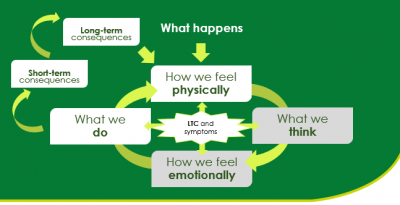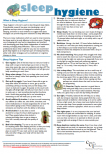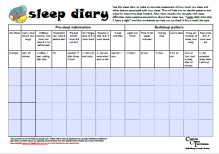Patient Area
4. Helpful and Unhelpful Action
Here you'll find all the worksheets and information you'll need to accompany your learning for Session 4 of our Building Resilience with Long-Term Physical Health Conditions webinars.
What we learned this week
How the type of activity we do can feed our vicious cycles

Last week we looked at the levels of activity we do, and how we can get into patterns of avoidance or boom and bust, where doing too little activity or too much activity can become a vicious cycle and make us feel worse.
This week, we explored how the types of activity we do can have surprising long-term effects too. As we saw last week, this is because our thoughts, mood and physical symptoms can lead us to choose actions that seem to help us feel better in the moment, but can have unhelpful effects in the longer term.
This week we looked at common types of actions, and suggested small changes you can try if you find they're part of your vicious cycles.
Sleeping Well
We talked about how medication, activity levels and what we eat or drink can affect our sleep. We shared some tips for sleeping well and you can find a recap in the resources below.
Our three key tips for better sleep are:
- Only try to sleep when you're tired
- Work with your natural sleep cycle as much as possible
- Get into a good routine of winding down for the evening
Our vicious cycles can draw us into patterns of sleeping too little, or not enough, so these tips can help you to recognise when you're being drawn towards an unhelpful action by your mood or physical symptoms, and weigh up the best choice for you.
Resources:
Physical Activity
A common vicious cycle around physical activity is where pain, fatigue or low mood can make us feel we're not up to the task, and we're drawn towards putting it off until we feel more motivated or more comfortable. But as we saw last week, doing too little activity can make our symptoms worse, and make it harder to exercise.
For those days when it's harder to get started, it can be helpful to think about types of activity that you enjoy, that involve movement. For example, even hobbies such as baking can get you moving around the kitchen and kneading dough can be a light workout for the arms!
If you decide to bring more physical activity into your routine, be sure to build up slowly. Use last week's tips for pacing to prevent that 'boom or bust' pattern. And reward yourself for your efforts!
Resources:
- We are Undefeatable: Tips on being active when living with a long-term condition.
- NHS Fitness Studio: Free workout videos you can do at home
What we eat
We've all heard the recommendations to eat at least 5 portions of fruit & veg a day, and how important a healthy and varied diet is for our physical health. This week we learned how what we eat affects our mental health too. You can find a recap in Mind's Food & Mood guide below.
Generally speaking, using the NHS Eatwell Guide can help us put together meals that are good for both our mind and body.
And it's important to note that any nutrition advice you've received from your physical healthcare team should come first.
Resources:
Alcohol, Nicotine & Caffeine
We often hear about how alcohol, nicotine and caffeine affect our body, but we don't always notice the impact they have on our mood too.
For example, caffeine stays in our body for much longer than we often realise. Although the initial effects may have worn off after a couple of hours, the caffeine is still in our system up to 5 hours later preventing us from winding down. This can make it harder to sleep, or make our sleep less restful, which then means we're more tired tomorrow. It's easy for a vicious cycle to arise here.
If you choose to reduce your caffeine intake, be sure to check for caffeine hidden in surprising places like chocolate and painkillers.
We also looked at how alcohol and nicotine can seem to reduce stress in the moment, but bring it back later in the form of cravings, withdrawal symptoms, interrupted sleep, hangovers, anxiety and low mood.
If you choose to reduce your alcohol intake, alcohol-free days can be a good place to start. You can find more tips and a handy unit calculator on the DrinkAware website.
And if you choose to cut down on nicotine, you can find tips and support for that at Smokefree Hampshire.
Resources:
- Drinkaware: Guidance and support around alcohol
- Smokefree Hampshire: Guidance and support around nicotine
Actions
These are the actions we're suggesting this week to start putting into practice what you've learned.
- Reflect on the actions in your vicious cycles
Tip: Aim to weigh up the short-term and long-term effects, to decide whether those actions are helpful towards your wellbeing goals overall.
- Try out some of the small changes we've suggested
Tip: If you're not sure whether an action is helpful or unhelpful for you, trying our suggestions for a week can help you to see whether it's worth making a more long-term change.
- Try keeping a sleep diary, and find out what works best for you
Tip: If you find yourself nodding off in the afternoon, bringing in some light exercise can kill two birds with one stone. It can boost your energy in the afternoon, and the exercise can help you sleep better later.
 Menu
Menu




